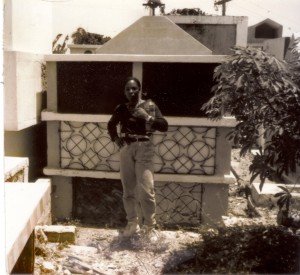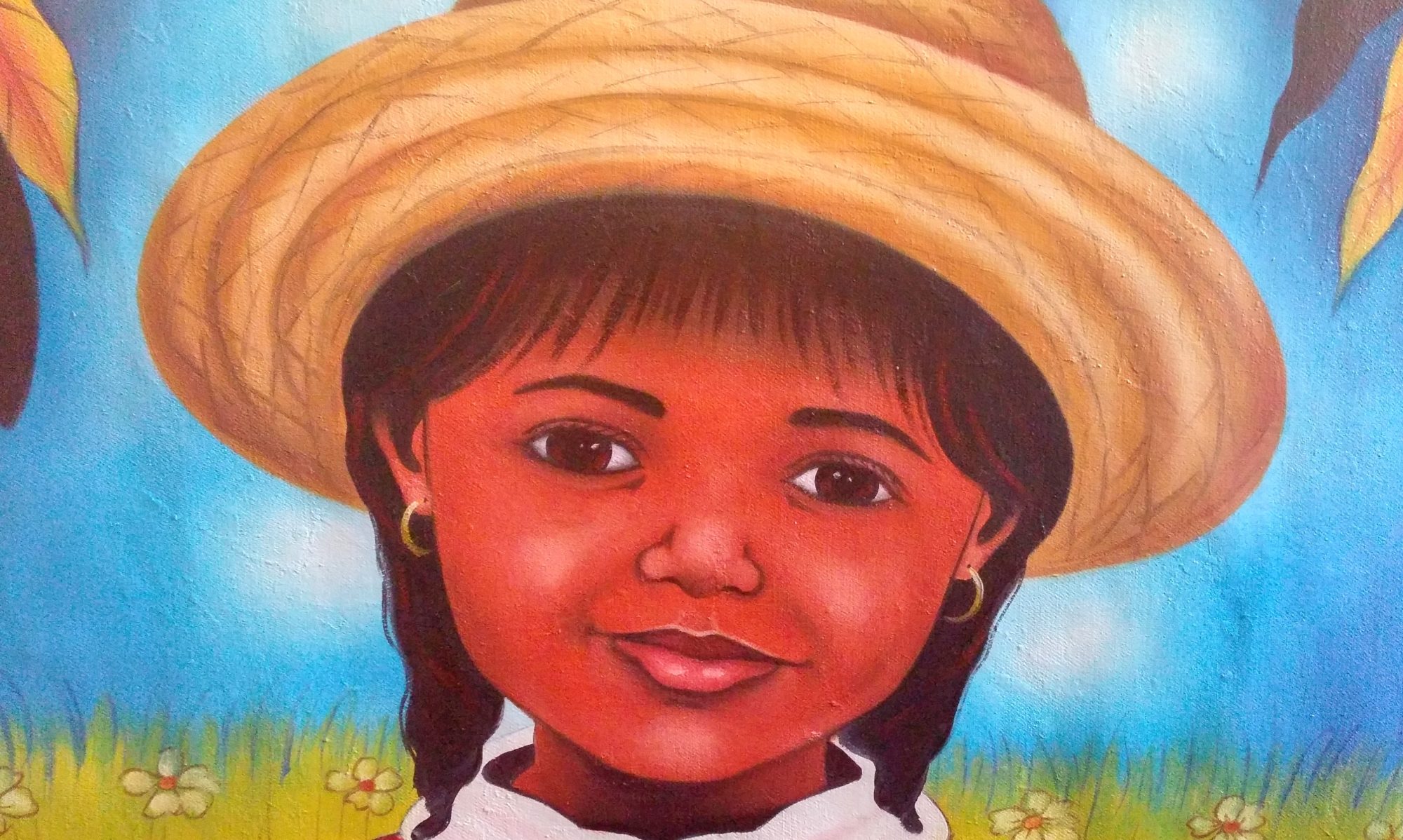 Tragedy doesn’t care which country you were born in; it doesn’t care where you live. Whether your home is a chateau or a tent, we’re all in this together. Tragedy creeps into homes, and ravages them. Innocent bystanders become unsuspecting victims. Moms, dads, siblings are left behind to try and make sense of utterly senseless situations. VoicesfromHaiti sends love and light to everyone touched by the inexplicable story that took place at an elementary school two days ago.
Tragedy doesn’t care which country you were born in; it doesn’t care where you live. Whether your home is a chateau or a tent, we’re all in this together. Tragedy creeps into homes, and ravages them. Innocent bystanders become unsuspecting victims. Moms, dads, siblings are left behind to try and make sense of utterly senseless situations. VoicesfromHaiti sends love and light to everyone touched by the inexplicable story that took place at an elementary school two days ago.
 This profound article is written by LIZA LONG. We found it on the Net. LIZA LONG is raising a mentally ill son, and shares what most won’t. Please read.
This profound article is written by LIZA LONG. We found it on the Net. LIZA LONG is raising a mentally ill son, and shares what most won’t. Please read.
Kenbe la!
——————————————————-
“I am Adam Lanza’s Mother” Written by LIZA LONG, editor@TheStranger.com
Three days before 20-year-old Adam Lanza killed his mother, then opened fire on a classroom full of Connecticut kindergartners, my 13-year old son Michael (name changed) missed his bus because he was wearing the wrong color pants.
“I can wear these pants,” he said, his tone increasingly belligerent, the black-hole pupils of his eyes swallowing the blue irises.
“They are navy blue,” I told him. “Your school’s dress code says black or khaki pants only.”
“They told me I could wear these,” he insisted. “You’re a stupid bitch. I can wear whatever pants I want to. This is America. I have rights!”
“You can’t wear whatever pants you want to,” I said, my tone affable, reasonable. “And you definitely cannot call me a stupid bitch. You’re grounded from electronics for the rest of the day. Now get in the car, and I will take you to school.”
I live with a son who is mentally ill. I love my son. But he terrifies me.
A few weeks ago, Michael pulled a knife and threatened to kill me and then himself after I asked him to return his overdue library books. His 7- and 9-year-old siblings knew the safety plan—they ran to the car and locked the doors before I even asked them to. I managed to get the knife from Michael, then methodically collected all the sharp objects in the house into a single Tupperware container that now travels with me. Through it all, he continued to scream insults at me and threaten to kill or hurt me.
That conflict ended with three burly police officers and a paramedic wrestling my son onto a gurney for an expensive ambulance ride to the local emergency room. The mental hospital didn’t have any beds that day, and Michael calmed down nicely in the ER, so they sent us home with a prescription for Zyprexa and a follow-up visit with a local pediatric psychiatrist.
We still don’t know what’s wrong with Michael. Autism spectrum, ADHD, Oppositional Defiant or Intermittent Explosive Disorder have all been tossed around at various meetings with probation officers and social workers and counselors and teachers and school administrators. He’s been on a slew of antipsychotic and mood altering pharmaceuticals, a Russian novel of behavioral plans. Nothing seems to work.
At the start of seventh grade, Michael was accepted to an accelerated program for highly gifted math and science students. His IQ is off the charts. When he’s in a good mood, he will gladly bend your ear on subjects ranging from Greek mythology to the differences between Einsteinian and Newtonian physics to Doctor Who. He’s in a good mood most of the time. But when he’s not, watch out. And it’s impossible to predict what will set him off.
Several weeks into his new junior high school, Michael began exhibiting increasingly odd and threatening behaviors at school. We decided to transfer him to the district’s most restrictive behavioral program, a contained school environment where children who can’t function in normal classrooms can access their right to free public babysitting from 7:30 a.m.-1:50 p.m. Monday through Friday until they turn 18.
The morning of the pants incident, Michael continued to argue with me on the drive. He would occasionally apologize and seem remorseful. Right before we turned into his school parking lot, he said, “Look, Mom, I’m really sorry. Can I have video games back today?”
“No way,” I told him. “You cannot act the way you acted this morning and think you can get your electronic privileges back that quickly.”
His face turned cold, and his eyes were full of calculated rage. “Then I’m going to kill myself,” he said. “I’m going to jump out of this car right now and kill myself.”
That was it. After the knife incident, I had told him that if he ever said those words again, I would take him straight to the mental hospital, no ifs, ands, or buts. I did not respond, except to pull the car into the opposite lane, turning left instead of right.
“Where are you taking me?” he said, suddenly worried. “Where are we going?”
“You know where we are going,” I replied.
“No! You can’t do that to me! You’re sending me to hell! You’re sending me straight to hell!”
I pulled up in front of the hospital, frantically waving for one of the clinicians who happened to be standing outside. “Call the police,” I said. “Hurry.”
Michael was in a full-blown fit by then, screaming and hitting. I hugged him close so he couldn’t escape from the car. He bit me several times and repeatedly jabbed his elbows into my rib cage. I’m still stronger than he is, but I won’t be for much longer.
The police came quickly and carried my son screaming and kicking into the bowels of the hospital. I started to shake, and tears filled my eyes as I filled out the paperwork—”Were there any difficulties with… at what age did your child… were there any problems with.. has your child ever experienced.. does your child have…”
At least we have health insurance now. I recently accepted a position with a local college, giving up my freelance career because when you have a kid like this, you need benefits. You’ll do anything for benefits. No individual insurance plan will cover this kind of thing.
For days, my son insisted that I was lying—that I made the whole thing up so that I could get rid of him. The first day, when I called to check up on him, he said, “I hate you. And I’m going to get my revenge as soon as I get out of here.”
By day three, he was my calm, sweet boy again, all apologies and promises to get better. I’ve heard those promises for years. I don’t believe them anymore.
On the intake form, under the question, “What are your expectations for treatment?” I wrote, “I need help.”
And I do. This problem is too big for me to handle on my own. Sometimes there are no good options. So you just pray for grace and trust that in hindsight, it will all make sense.
I am sharing this story because I am Adam Lanza’s mother. I am Dylan Klebold’s and Eric Harris’s mother. I am Jason Holmes’s mother. I am Jared Loughner’s mother. I am Seung-Hui Cho’s mother. And these boys—and their mothers—need help. In the wake of another horrific national tragedy, it’s easy to talk about guns. But it’s time to talk about mental illness.
According to Mother Jones, since 1982, 61 mass murders involving firearms have occurred throughout the country. Of these, 43 of the killers were white males, and only one was a woman. Mother Jones focused on whether the killers obtained their guns legally (most did). But this highly visible sign of mental illness should lead us to consider how many people in the U.S. live in fear, like I do.
When I asked my son’s social worker about my options, he said that the only thing I could do was to get Michael charged with a crime. “If he’s back in the system, they’ll create a paper trail,” he said. “That’s the only way you’re ever going to get anything done. No one will pay attention to you unless you’ve got charges.”
I don’t believe my son belongs in jail. The chaotic environment exacerbates Michael’s sensitivity to sensory stimuli and doesn’t deal with the underlying pathology. But it seems like the United States is using prison as the solution of choice for mentally ill people. According to Human Rights Watch, the number of mentally ill inmates in U.S. prisons quadrupled from 2000 to 2006, and it continues to rise—in fact, the rate of inmate mental illness is five times greater (56 percent) than in the non-incarcerated population.
With state-run treatment centers and hospitals shuttered, prison is now the last resort for the mentally ill—Rikers Island, the LA County Jail and Cook County Jail in Illinois housed the nation’s largest treatment centers in 2011.
No one wants to send a 13-year-old genius who loves Harry Potter and his snuggle animal collection to jail. But our society, with its stigma on mental illness and its broken healthcare system, does not provide us with other options. Then another tortured soul shoots up a fast food restaurant. A mall. A kindergarten classroom. And we wring our hands and say, “Something must be done.”
I agree that something must be done. It’s time for a meaningful, nation-wide conversation about mental health. That’s the only way our nation can ever truly heal.
God help me. God help Michael. God help us all.
Liza Long is an author, musician, and erstwhile classicist. She is also a single mother of four bright, loved children, one of whom has special needs. To read more from the Blue Review, click here.
http://slog.thestranger.com/slog/archives/2012/12/15/i-am-adam-lanzas-mother
 Ask the mother whose child has died if it’s true that the world ended. Ask anyone who lost a family member last week. Last night. Today. Ask them if it’s true what they say about the end.
Ask the mother whose child has died if it’s true that the world ended. Ask anyone who lost a family member last week. Last night. Today. Ask them if it’s true what they say about the end.





